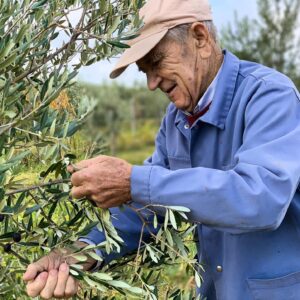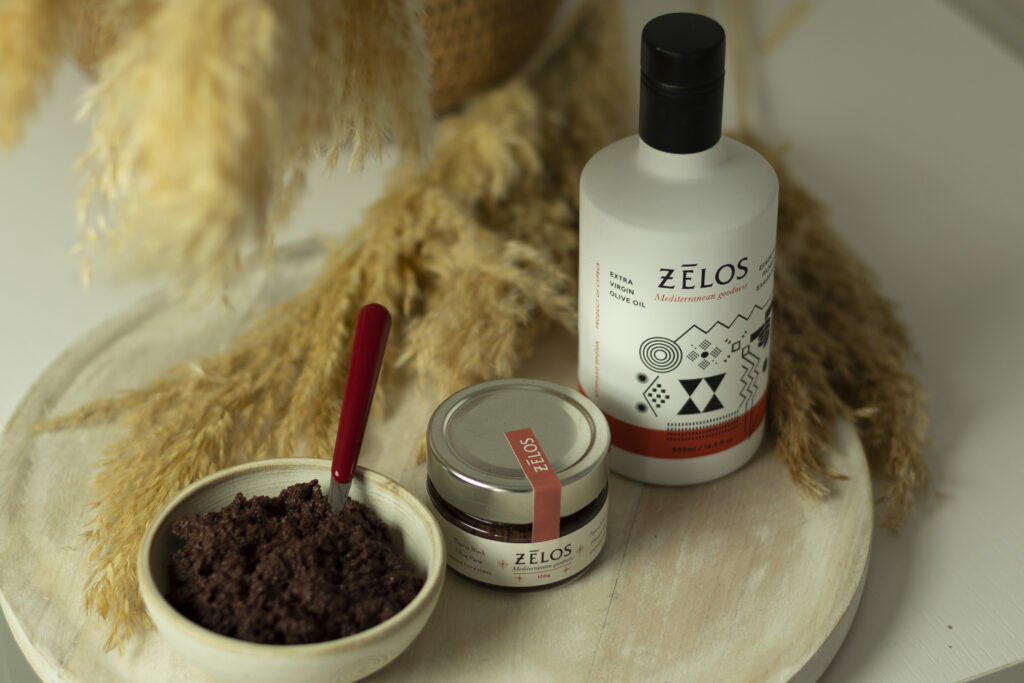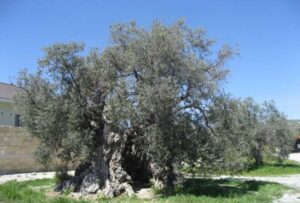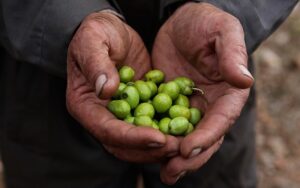Mediterranean Elegance – Cypriot and Koroneiki Olive Oil Blend

Indulge your senses in a culinary journey with our extraordinary Extra Virgin Olive Oil blend crafted from the finest Cypriot and Koroneiki olives. This exquisite fusion brings together the distinct characteristics of two renowned olive varieties, resulting in a harmonious and flavorful elixir that elevates every dish.
Our olives are meticulously cultivated in the sun-kissed groves of Cyprus, where the island’s rich soil and Mediterranean climate contribute to the unique taste profile of our extra virgin olive oil. The inclusion of Koroneiki olives, sourced from the ancient olive orchards of Greece, adds a layer of complexity and depth to this exceptional blend.
Aroma and texture
Delicate notes of fresh grass, pine trees, and a hint of artichoke greet your senses, promising a symphony of flavors to follow. The initial taste unfolds with a gentle balance of fruity and herbal undertones, accentuated by a peppery finish that signifies the high-quality antioxidants present in the oil.
The texture is silky and smooth, our blend coats the palate, leaving a lingering essence that enhances the overall culinary experience.
Versatility in the Kitchen

Whether drizzled over a crisp summer salad, used as a dipping sauce for crusty artisan bread, or incorporated into your favorite recipes, our Cypriot and Koroneiki Olive Oil blend is a versatile companion in the kitchen. Its robust flavor enhances the taste of grilled vegetables, seafood, and meats, making it an essential ingredient for both novice cooks and seasoned chefs alike.
Health Benefits
Packed with polyphenols and heart-healthy monounsaturated fats, ZELOS Extra Virgin Olive Oil is not only a culinary delight but also a nutritional powerhouse. The antioxidants present contribute to overall well-being, while the smooth texture makes it a delightful addition to health-conscious diets.
Sustainability and Quality Assurance
At the heart of the production lies a commitment to sustainability and quality. Our producers adhere to traditional harvesting methods, ensuring that each olive is plucked at the peak of ripeness. The cold-press extraction process retains the oil’s natural flavors and nutritional benefits while minimizing environmental impact.
Experience the epitome of Mediterranean elegance with our Cypriot and Koroneiki Olive Oil blend. Elevate your culinary creations with the distinctive flavors of two exceptional olive varieties, carefully blended to perfection. From the sun-drenched groves to your table, savor the essence of the Mediterranean in every drop.









